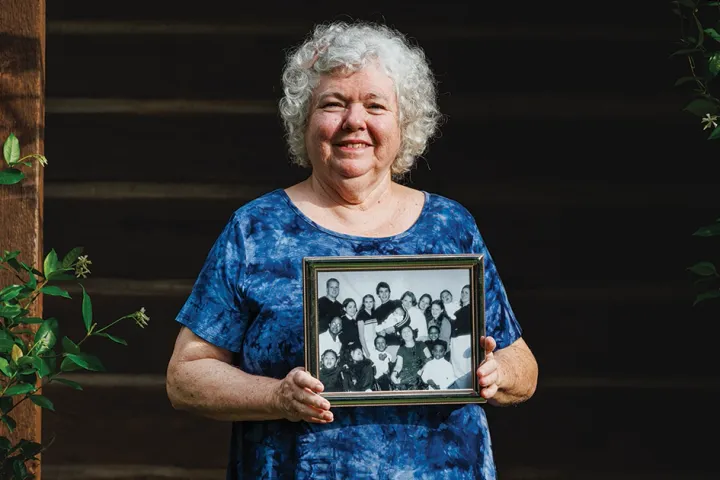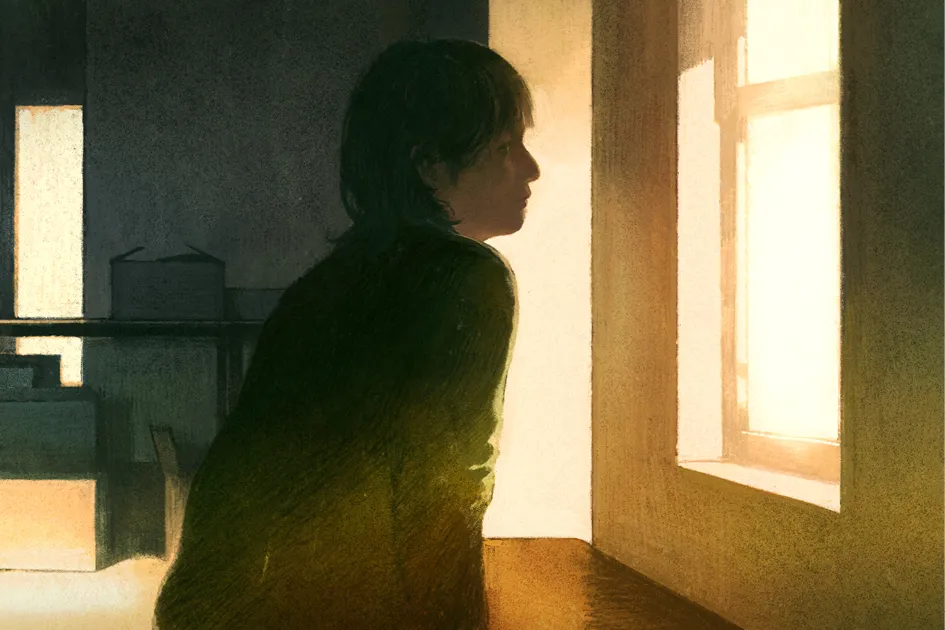Fear is the opposite of faith. This popular phrase, common in church circles, offers a simplistic solution for those of us who struggle with fear daily. From a young age, I was taught that if I believed hard enough, fear would dissipate like fog in the morning sunshine. When a scary situation arose, I tried to think my way out of it, will myself out of it, and pray it away—but fear remained. Apparently my faith was smaller than a mustard seed, because I’ve endured decades of doubt, inner pain, nightmares, and fitful sleep.

Now, raising three children and observing how they experience fear has given me a new perspective on my own distress. When my children are afraid, I don’t expect them to think or feel differently. I don’t offer misguided answers that require them to hoist the boulder of fear off their own slight shoulders. They need to express their concerns and receive love in return. When they are afraid, they need me to respond with a hug, a look in the eye, and the assurance that in my presence they are safe. In the face of love, fear loses its strength.
The dynamic with my kids is a reminder that fear is not the opposite of faith; fear is the opposite of love. Faith is not a Band-Aid we can slap over our pain, but love? Love is a balm. A salve. A medicine that heals rather than hides the pain. When we know our own belovedness as a child of God, we can receive the love that companions us into dark, scary spaces.
Our tendency, when we find ourselves afraid, is to look for an exit as quickly as possible. We use every kind of numbing distraction modern life offers—busyness, food, drink, shopping, and scrolling on screens—to move through the discomfort. We are masters at the art of the escape. But numbing and escape offer only short-lived relief. We can’t just throw an isolated Bible verse or religious-sounding phrase at our fear, either.
God continually moves towards those in fear, those in pain, those trapped in sin or disease or religious posturing.
Instead, we can look to Scripture to see God’s character as He continually moves towards those in fear, those in pain, those trapped in sin or disease or religious posturing. When Jacob spends an anxious night in a solitary place before meeting his estranged brother Esau, he is not alone. He wrestles with an angel and names the place of this wrestling Peniel, which means “face of God.” Jacob saw the Lord “face to face” and lived to tell about it (Gen. 32:30). Then, in the great Exodus, the Israelites are never left to fend for themselves in the desert of their anxiety. God is ever-present, offering proof of His presence in a flame by night and a cloud by day. The above are among countless stories of God’s with-ness in the Bible—a with-ness that culminates in the incarnation of Jesus Christ and the presence of the Holy Spirit. The central story of our faith is the belief that God moves toward us, especially in our darkest, most anxious places.
Sometimes our fears are rooted in the imaginations of some future disaster, and sometimes the thing we fear most becomes a reality:
The diagnosis is terminal.
The child rejects faith.
The job is lost.
The traumatic event changes everything.
But no matter what happens, Christ is there waiting with His presence. We are not alone. Fear is real, but Love Himself carries us to the end of the age.





